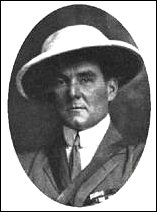Today marks a sad date for fans of public radio. Tavis Smiley airs his last show on National Public Radio after three years and sat down with Salon.com for an interview published today. As an avid listener, I appreciated Smiley's invitation to prominent African-Americans, even self-labelled conservatives, to join the conversation on timely topics. It was a sorely needed voice on the airwaves.
But from the outset I wondered how The Tavis Smiley Show would be received by the paying, if not loyal, NPR audience, even though it was the first NPR show to originate from Los Angeles. Locally, two stations aired the show: KCRW in progressive Santa Monica by the sea, and KPCC in conservative Pasadena in the foothills. KCRW slated him for the morning commute, but listeners complained, wanting the unchanging voices of Morning Edition. So they stuck him at 5-6am, which might have gone down well with truck drivers looking for breakfast, but killed the show. It was taken off the station some time ago. Yet, KPCC aired him consistently during quality time, 8-9pm, from the start.
Now why a station from a city known as the "People's Republic of Santa Monica" should effectively "whiten" the airwaves is surprising. But then, perhaps not. The Salon interview also includes this appraisal of top-tier managment at NPR:
Public radio has been enormously successful in recent years, thanks in part to David Giovannoni, a public-radio analyst the New York Times calls "quite possibly the most influential figure in shaping the sound of National Public Radio today." Giovannoni's research shows that NPR's core audience -- affluent white baby boomers -- doesn't want programming geared toward minorities, or young people, even in moderation. Every time they turn on the radio, he argues, that audience wants to hear the dulcet tones of the Linda Wertheimer sound-alikes who've come to define public radio. Many stations believe that following the advice of Giovannoni and his disciples means they will attract more listeners, which means more donations. As a result, their programming has become aggressively unsurprising, rarely straying far from the predictable approach of "Morning Edition" and "All Things Considered."
KCRW showed its true colors too, not so long ago. Back in March, commentator and performer Sandra Tsing Loh was fired by GM Ruth Seymour for using the "f-word" during her weekly commentary that was meant to be deleted by the recording engineer. It was not. So Seymour, worried about FCC meddling, bounced Tsing Loh, and was met with widespread criticism. The incident brought national attention and Seymour had to rescind her decision. Thankfully, Tsing Loh is now at KPCC.
But the decision by Tavis Smiley to leave NPR still leaves me - and I hope others - with a queasy feeling about the future of public radio. Will the "public" in public radio come to mean "pay as you go" programming, or will stations try to adhere to original goals of programming, bringing diverse voices from the local community to a range of issues not addressed by commercial stations. The "white out" at NPR doesn't bode well for the latter.
Subscribe to:
Post Comments (Atom)

No comments:
Post a Comment